Books
Small clauses in English: the non-verbal types. 1992. Berlin: Mouton De Gruyter.
The verb in contemporary English: theory and description. 1995. (Edited with Charles F. Meyer.) Cambridge: Cambridge University Press.
Exploring natural language: the British component of the International Corpus of English. 2002. (With Gerald Nelson and Sean Wallis.) Varieties of English Around the World series. Amsterdam: John Benjamins.
Fuzzy grammar: a reader. 2004. (Edited with David Denison, Evelien Keizer and Gergana Popova.) Oxford: Oxford University Press.
The handbook of English linguistics. 2006. (Edited with April McMahon.) Malden MA: Blackwell Publishers.
Syntactic gradience: the nature of grammatical indeterminacy. 2007. Oxford: Oxford University Press.
English syntax and argumentation. Third edition 2008. Palgrave Modern Linguistics Series. Basingstoke and London: Palgrave. This edition was also translated into Korean.
Oxford modern English grammar. 2011. Oxford: Oxford University Press.
The verb phrase in English: investigating recent language change with corpora. 2013. (Edited with Joanne Close, Geoffrey Leech and Sean Wallis.) Cambridge: Cambridge University Press.
English syntax and argumentation. Fourth edition 2013. Palgrave Modern Linguistics Series. Basingstoke and London: Palgrave Macmillan.
Oxford dictionary of English grammar. Second edition 2014. (With Sylvia Chalker and Edmund Weiner.) Oxford: Oxford University Press.
English syntax and argumentation. Fifth edition. 2018. Palgrave Modern Linguistics Series. Basingstoke and London: Palgrave Macmillan.
How to teach grammar. 2019. (With Ian Cushing and Richard Hudson.) Oxford: Oxford University Press.
The Oxford handbook of English grammar. 2020. (Edited with Jill Bowie and Gergana Popova.) Oxford: Oxford University Press.
The handbook of English linguistics. Second edition. Forthcoming 2021. (Edited with Lars Hinrichs and April McMahon). Oxford: Wiley.
English syntax and argumentation. Sixth edition. 2023. London: Bloomsbury.
Chapters in Books
(Many of these are downloadable at www.academia.edu)
Secondary predicates in English. 1995. In: Bas Aarts and Charles F. Meyer (eds.). The verb in contemporary English: theory and description. Cambridge: Cambridge University Press. 75-100.
Theoretical and descriptive approaches to the study of the verb in English. 1995. (With Charles F. Meyer.) In: Bas Aarts and Charles F. Meyer (eds.) The verb in contemporary English: theory and description. Cambridge: Cambridge University Press. 1-24.
The rhetorical adverb simply in present-day British English. 1996. In: Carol Percy, Charles F. Meyer and Ian Lancashire (eds.) Synchronic corpus linguistics. Amsterdam and Atlanta GA: Rodopi. 59-68.
The role of argumentation in the description of English. 1997. In: Jan Aarts, Herman Wekker and Inge de Mönninck (eds.) Studies in English language and teaching: in honour of Flor Aarts. Amsterdam: Rodopi. 7-21.
The Internet grammar of English: new horizons in grammar pedagogy. 1998. (With Gerald Nelson and Justin Buckley.) In: Antoinette Renouf (ed.) Explorations in corpus linguistics. Amsterdam: Rodopi. 249-255.
Online resources for grammar teaching and learning: the Internet grammar of English. 1999. (With Gerald Nelson and Justin Buckley.) In: Rebecca S. Wheeler (ed.) Language alive in the classroom. New York: Praeger. 199-212.
Investigating English around the world: The International Corpus of English. 1999. (With Gerald Nelson.) In: Rebecca S. Wheeler (ed.) The workings of language: from prescriptions to perspectives. New York: Praeger. 107-115.
Global resources for a global language: English language pedagogy in the modern age. 2000. (With Gerald Nelson and Sean Wallis.) In: Claus Gnutzmann (ed.) English as a Global Language: native and nonnative perspectives. Tübingen: Stauffenburg Verlag. 273-290.
Parsing in reverse: exploring ICE-GB with Fuzzy Tree Fragments and ICECUP. 2000. (With Sean Wallis and Gerald Nelson.) In: John M. Kirk (ed.) Corpora galore: analyses and techniques in describing English. Amsterdam: Rodopi. 335-344.
Corpus construction: a principle for qualitative data collection. 2000. (With Martin W. Bauer.) In: Martin W. Bauer and George Gaskell (eds.) Qualitative researching: with text, image and sound. London: Sage. 19-37. Translated as A construção do corpus: um princípio para a coleta de dados qualitativos. In: W. Bauer and George Gaskell (eds.) Pesquisa qualitativa com texto imagem e som: um manual prático , Petrópolis ( Brazil ): Editora Vozes, 2002. 39-63. Also translated into Chinese, and published by the Wunan Book Co., Taipeh, Taiwan. (http://www.wunan.com.tw/bookdetail.asp?no=9179)
Corpus linguistics, Chomsky and Fuzzy Tree Fragments. 2001. In: Christian Mair and Marianne Hundt (eds.). Corpus linguistics and linguistic theory. Amsterdam: Rodopi. 5-13. Reprinted in Wolfgang Teubert and Ramesh Krishnamurthy (eds.) (2007) Corpus Linguistics: Critical Concepts in Linguistics, volume 1, London: Routledge. 173-181.
Relative whom: a ‘mischief-maker’. 2002. (With Flor Aarts.) In: Andreas Fischer, Gunnel Tottie and Peter Schneider (eds.) Text types and corpora. Tübingen: Gunter Narr Verlag. 123-130.
Which or what: a study of interrogative determiners in present-day English. 2003. (With Evelien Keizer, Mariangela Spinillo and Sean Wallis.) In: Andrew Wilson, Paul Rayson and Anthony McEnery (eds.). Corpus Linguistics by the Lune: a festschrift for Geoffrey Leech. (Lodz Studies in Language 8) Frankfurt am Main: Peter Lang. 9-22.
Fuzzy grammar: the nature of grammatical categories and their representation. 2004. (With David Denison, Evelien Keizer and Gergana Popova.) In: Bas Aarts, David Denison, Evelien Keizer and Gergana Popova Fuzzy grammar: a reader. Oxford: Oxford University Press. 1-28.
Introduction. In: Bas Aarts and April McMahon (eds.) The handbook of English linguistics. 2006. Malden MA: Blackwell Publishers.
English word classes and phrases. (With Liliane Haegeman.) In: Bas Aarts and April McMahon (eds.) The handbook of English linguistics. 2006. Malden MA: Blackwell Publishers.
Approaches to the English gerund. In: Graeme Trousdale and Nikolas Gisborne (eds.) Constructional explanations in English grammar. Topics in English Linguistics 57. 2008. Berlin and New York: Mouton de Gruyter. 11-31.
Corpus construction: a principle for qualitative data collection. (With Martin W. Bauer.) In: Martin W. Bauer and George Gaskell (eds.) Qualitative researching: with text, image and sound. London: Sage. Wunan Book Co., Taipeh, Taiwan. [Chinese translation of paper from 2000.]
Recent changes in the use of the progressive construction in English. (With Joanne Close and Sean Wallis). In: Bert Cappelle and Naoaki Wada (eds.) Distinctions in English grammar, offered to Renaat Declerck. 2010. Tokyo: Kaitakusha. 148-167.
Current change in the modal system of English: a case study of must, have to and have got to. (With Joanne Close.) In: Ursula Lenker, Judith Huber, and Robert Mailhammer (eds), The history of English verbal and nominal constructions. Volume 1 of English historical linguistics 2008: Selected papers from the fifteenth International Conference on English Historical Linguistics (ICEHL 15), Munich 24-30 August 2008. 2010. Amsterdam: John Benjamins. 165-181.
Late modern English syntax. (With Maria José López-Couso and Belén Méndez-Naya.) In: Laurel Brinton (ed.) Volume 2 of Historical Linguistics of English. 2012. Berlin and New York: Mouton de Gruyter. 869-887.
Change in the English infinitival perfect construction. (With Jillian Bowie.) In: Terttu Nevalainen and Elizabeth Closs Traugott (eds.) The Oxford Handbook of the History of English. 2012. Oxford: Oxford University Press. 200-210.
Creating corpus-driven teaching and learning resources for secondary school grammar teaching. In: Piotr Pezik (ed.) Corpus Data across Languages and Disciplines. Lódz Studies in Language 28. 2012. Frankfurt: Peter Lang. 9-19.
Introduction. (With Joanne Close, Geoffrey Leech and Sean Wallis.) 2013. In: Bas Aarts, Joanne Close, Geoffrey Leech and Sean Wallis (eds.) The verb phrase in English: investigating recent language change with corpora. Cambridge: Cambridge University Press. 1-13.
Choices over time: methodological issues in current change. (With Joanne Close and Sean Wallis.) 2013. In: Bas Aarts, Joanne Close, Geoffrey Leech and Sean Wallis (eds.) The verb phrase in English: investigating recent language change with corpora. Cambridge: Cambridge University Press. 14-43.
The perfect in spoken British English. (With Jill Bowie and Sean Wallis.) 2013. In: Bas Aarts, Joanne Close, Geoffrey Leech and Sean Wallis (eds.) The verb phrase in English: investigating recent language change with corpora. Cambridge: Cambridge University Press. 318-352.
Contemporary change in modal usage in spoken British English: mapping the impact of ‘genre’. (With Jill Bowie and Sean Wallis.) 2013. In: Juana I. Marín Arrese, Marta Carretero Lapeyre, Jorge Arus Hita and Johan van der Auwera (eds.) English modality: core, periphery and evidentiality. Berlin and New York: De Gruyter. 57-94.
Noun phrase simplicity in spoken English. (With Sean Wallis.) 2014. In: Ludmila Veselovska and Marketa Janebova (eds.) Complex visibles out there. Proceedings of the Olomouc Linguistics Colloquium 2014: Language and linguistic structure. Olomouc: Palacky University. 501-511.
Profiling the English verb phrase over time: modal patterns. (With Jill Bowie and Sean Wallis.) 2015. In: Irma Taavitsainen, Merja Kytö, Claudia Claridge and Jeremy Smith (eds.) Developments in English: expanding electronic evidence. Cambridge: Cambridge University Press. 48-76.
Clause fragments in English dialogue. (With Jill Bowie.) 2016. In: María José López-Couso, Belén Méndez-Naya, Paloma Núñez-Pertejo, and Ignacio Palacios (eds.) Corpus linguistics on the move: exploring and understanding English through corpora. Leiden: Brill. 259-288.
Language learning at your fingertips: deploying corpora in mobile teaching apps. (With Seth Mehl and Sean Wallis.) 2016 In: Karen Corrigan and Adam Mearns (eds.) Creating and digitizing language corpora. Volume 3: Databases for Public Engagement. Basingstoke: Palgrave (Springer). 211-239.
Using corpora for English language teaching and learning. (With Ellen Smith-Dennis.) 2018. In: Dan McIntyre and Hazel Price (eds.) Applying linguistics: language and the impact agenda. London: Routledge.
–Ing clauses in spoken English: structure, usage and recent change. 2018. In: Elena Seoane, Carlos Acuña-Fariña and Ignacio Palacios-Martínez (eds.) Subordination in English: synchronic and diachronic perspectives. Topics in English Linguistics. Berlin: De Gruyter. 129-154.
Syntactic argumentation. 2020. In: Bas Aarts, Jillian Bowie and Gergana Popova (eds.) The Oxford handbook of English grammar. Oxford: Oxford University Press. 21-39.
Recent syntactic change in English. (With Jill Bowie.) Forthcoming. In: Joan Beal (ed.) New Cambridge history of the English language, Volume III transmission, change and ideology. Cambridge: Cambridge University Press.
The Survey of English Usage (With Sean Wallis.) Forthcoming. In: Chris Montgomery and Emma Moore (eds.) The Oxford handbook of British Englishes. Oxford: Oxford University Press.
Participles and so-called synthetic compounds as attributive modifiers in English. Forthcoming. In: Andrew Rosta, Eva Eppler and Nikolas Gisborne (eds.) Word Grammar, cognition and dependency. Cambridge: Cambridge University Press.
Articles
(Many of these are downloadable at www.academia.edu)
Clauses of concession in written present-day British English. 1988. Journal of English Linguistics 21, 39-58.
Verb-preposition constructions and small clauses in English. 1989. Journal of Linguistics 25.2, 277-290.
Prevent-type verbs in a GB-framework. 1990. UCL Working Papers in Linguistics 2, 147-164.
Applying Government-Binding theory: a case study. In: M a. A. Jurado Spuch (ed.) Linguistic inquiry: applications. 1992. Revista Canaria de Estudios Ingleses 25, 13-23.
Descriptive linguistics and theoretical linguistics: some new thoughts on a (still) uneasy relationship. 1993. Moderne Sprachen 37.4. 197-208.
The syntax of binominal noun phrases in English. 1994. Dutch Working Papers in English Language and Linguistics 30. 1-28.
Predicative XPs in English. 1997. Journal of English Linguistics 25.4. 332-339.
Binominal noun phrases in English. 1998. Transactions of the Philological Society 96.1, 117-158.
Using Fuzzy Tree Fragments to explore English grammar. 1998. English Today 14.3. 52-56. (With Gerald Nelson and Sean Wallis.)
Modelling linguistic gradience. 2004. Studies in Language 28.1. 1-49.
Grammatici certant. Review Article of Rodney Huddleston and Geoffrey Pullum (2002) The Cambridge grammar of the English language . 2004, Journal of Linguistics 40.2. 352-382.
Conceptions of gradience in the history of linguistics. 2004. Language Sciences 26. 343-389.
Grammar. 2005. In: Keith Brown (ed.) The Encyclopedia of Language and Linguistics. Second edition. Oxford: Elsevier. 113-115 (vol. 5).
Subordination. 2005. In: Keith Brown (ed.) The Encyclopedia of Language and Linguistics. Second edition. Oxford : Elsevier. 248-255 (vol. 12).
Conceptions of categorization in the history of linguistics. 2006. Language Sciences 28. 361-385.
In defence of distributional analysis, pace Croft. 2007. Studies in Language 31.2. 431-443.
The subjunctive conundrum. 2012. Folia Linguistica 46.1.1-20.
Bridging the grammar gap: teaching English grammar to the iPhone generation. 2012. (With Dan Clayton and Sean Wallis.) English Today 28.1. 3-8.
Exploiting parsed corpora in grammar teaching. 2012. (With Sean Wallis and Ian Cushing). 2019. Linguistic Issues in Language Technology (LiLT) 18.5. 1-36. (Published online.)
The grammar of ‘non-realization’. 2020. (With Tania Kuteva, Gergana Popova and Anvita Abbi). Studies in Language 43.4. 850–897.
Oblique predicative constructions in English with for and as: qua vs. qualitate qua. English Language and Linguistics, 2023. English Language and Linguistics, First View, pp. 1–16. https://tinyurl.com/3mcnbkek. DOI: https://doi.org/10.1017/S1360674323000199
Englicious in the primary classroom: teachers’ experiences of using a play-based intervention to support Year 2 children’s understanding of grammar. (With Sue Sing). Forthcoming in Impact. 2023.
Reviews and shorter pieces
Review of Bob Rigter and Frits Beukema (1985), A government and binding approach to English sentence structure. First explorations in English syntax, Part 2. Apeldoorn: van Walraven. 1988. English Studies 69.3, 286-287.
Review of Andrew Radford (1988), Transformational grammar: a first course. Cambridge: Cambridge University Press. 1989. English Studies 70.5, 456-458.
Review of David Crystal (1988), The English language. London: Penguin. 1990. English Studies 71.5, 476-477.
Review of Liliane Haegeman (1991) An introduction to government and binding theory. Oxford: Blackwell. 1992. Studia Linguistica 46.1, 77-81.
Review of Christian Mair (1990), Infinitival complement clauses in English: a study of syntax in discourse. Cambridge: Cambridge University Press. 1994. Links & Letters. 1, 125-127.
Review of Sylvia Chalker and Edmund Weiner (1994) The Oxford dictionary of English grammar . Oxford: Clarendon Press. 1994. English Today 40. 55-56.
Review of R. L. Trask (1993), A dictionary of grammatical terms in linguistics. London: Routledge. 1994. Lingua 94. 267-270.
Review of Linda Thomas (1993) Beginning syntax. Oxford: Blackwell. 1996. Anglia 114.1. 91-94.
Editors’ note (With David Denison and Richard Hogg.). 1997. English Language and Linguistics 1.1.
Biography of Sidney Greenbaum. 1999. In: Bernard Spolsky (ed.) The International Encyclopedia of Educational Linguistics, Oxford: Pergamon. 189.
Review of Peter Collins and David Lee (1999) (eds.) The clause in English: in honour of Rodney Huddleston. Studies in Language Companion Series. Amsterdam: John Benjamins. 2001. Journal of Linguistics 37. 423-428.
Argumentation. In: The Guide to Good Practice for learning and teaching in Languages, Linguistics and Area Studies. 2003. Published on the web
Biography of Sidney Greenbaum (With Geoffrey Alderman.). 2004. Oxford Dictionary of National Biography . Oxford: Oxford University Press
Getting Started with ICECUP . For use with The British Component of The International Corpus of English (ICE-GB) Versions 3.0 and 3.1 and A Diachronic Corpus of Present-Day Spoken English (DCPSE) (With Gerald Nelson and Sean Wallis.). Second Edition, 2006. London: Survey of English Usage.
Recent developments in the syntactic annotation of corpora (with Sean Wallis). 2006. In: Eloína Miyares Bermúdez and Leonel Ruiz Miyares (eds.) Linguistics in the twenty-first century. 2006. Cambridge: Cambridge Scholars Press. 197-202.
Editors’ note (With David Denison and Richard Hogg.). 2007. English Language and Linguistics 11.1. i-ii.
Appreciation of Richard Hogg (With David Denison.). 2007. English Language and Linguistics 11.3. i-ii).
Is there an English subjunctive? 2011. Oxford University Press Words Blog and Grammarianism Blog.
Research Excellence Framework Case Study 'Creating educational and commercial access to English language resources: using corpora for English language teaching and learning'. English Department UCL. 2014
Lives in Language: Otto Jespersen 1860-1943. 2016. Babel: the Language Magazine 14, 29-31.
Languages change all the time. Spread the Word Blog. Oxford University Press. 2016.
Modal verbs: how their use has declined in recent times. Spread the Word Blog. Oxford University Press. 2017.
Changes in the use of the subjunctive. Spread the Word Blog and Grammarianism Blog Oxford University Press. 2017.
The English progressive construction: how it is changing. Spread the Word Blog and Grammariansim Blog. Oxford University Press. 2018.
Nouns as adjectives: one of the funnest changes in English. Spread the Word Blog and Grammarianism Blog. Oxford University Press. 2018.
Long read: do teachers really hate teaching grammar? TES and Grammarianism Blog. 2018.
Making grammar meaningful: grammatical subject knowledge and pedagogical principles for grammar teaching. Teaching English 19. 2019, 52-54. 2019.
Taxing taxonomy: how easy is it to categorise words? Macmillan International Higher Education Blog and Grammarianism Blog. 2019.
Review of Rodney Huddleston, Geoffrey K. Pullum and Brett Reynolds, A student’s introduction to English grammar, 2nd edition. English Language and Linguistics. Cambridge: Cambridge University Press, 1-7. https://tinyurl.com/2p9uwjm2 doi:10.1017/S1360674322000430.
Blog
Software
The Diachronic Corpus of Present -Day Spoken English (DCPSE; with Sean Wallis). 2006. Survey of English Usage.
The Interactive Grammar of English (iGE; with Sean Wallis. An 'app' for Apple and Android handheld devices). 2011. Survey of English Usage. (http://www.ucl.ac.uk/english-usage/apps/ige/)
Reports
Corpora and Grammars on the Web: The W3Corpora-IGE Project. Final Report. JTAP Project 2/247. (With Douglas Arnold, Justin Buckley, Ylva Berglund, Gerald Nelson, and Martin Rondell.) 1998.
Development of an effective grammatical query methodology in the context of a parsed corpus. Final Report. ESRC Project R000222598. (With Sean Wallis.) 1999.
The ICE-GB Handbook. Final Report. British Academy Project. 1999.
The English Noun Phrase: an empirical study. Interim Report and Final Report. AHRB Project B/RG/AN5308/APN10614. (With Evelien Keizer.) 2002/2003.
Creating a Parsed and Searchable Diachronic Corpus of Present-Day Spoken English (DCPSE). Interim Report and Final Report. ESRC Project R000239643. (With Sean Wallis.) 2004.
Next generation tools for linguistic research in grammatical treebanks. Final Report. ESRC Project R000231286. (With Sean Wallis.) 2008.
The changing verb phrase in present-day British English. Final Report. AHRC Project AH/E006299/1. 2011.
Grants awarded
The British Academy
The ICE-GB handbook, 1999. £3,808. This grant was awarded to enable the publication of Exploring natural language by Gerald Nelson, Sean Wallis and Bas Aarts (Amsterdam: John Benjamins 2002). See also: http://www.ucl.ac.uk/english-usage/ice-gb/book.htm.
Arts and Humanities Research Board (AHRB)
The English noun phrase: an empirical study, 1999. £78,732. The project’s aims were to carry out a large-scale study of the English Noun Phrase (NP), using the British component of the International Corpus of English (ICE-GB) as a database (see above). The overall research objective was for the Research Fellow Dr Evelien Keizer (now at the University of Amsterdam) to produce a comprehensive typology of English NPs which was published in a monograph published by Cambridge University Press. See also: http://www.ucl.ac.uk/english-usage/noun-phrase/index.htm.
Economic and Social Research Council (ESRC)
Creating a parsed and searchable diachronic corpus of present-day spoken English, 2002. £132,951. This project developed a corpus that allows recent changes in spoken English to be studied systematically. The corpus is composed of two 400,000-word samples of spoken English from the London-Lund Corpus and from ICE-GB. The material is fully parsed, consistently with the ICE-GB corpus, and searchable using the ICE-GB exploration software. See also: http://www.ucl.ac.uk/english-usage/diachronic/index.htm. This project was graded as ‘outstanding’ research by the ESRC.
Economic and Social Research Council (ESRC).
(With Sean A. Wallis.) Next generation tools for linguistic research in grammatical treebanks, 2005. £156,307. This research project developed a computer program for linguists to carry out complex, statistically sound experiments investigating grammar within a large treebank corpus. See also: http://www.ucl.ac.uk/english-usage/projects/next-gen/index.htm. This project was graded as ‘outstanding’ research by the ESRC.
Arts and Humanities Research Council (AHRC)
The changing verb phrase in present-day British English, 2007. £265,555. This project will be a large-scale investigation of changes in the (morpho)syntax of the spoken British English verb phrase over a period of twenty-five years (1960s-1990s), using the Diachronic Corpus of Present-day Spoken English.
UCL Business PLC
(With Sean A. Wallis.) A Proof of Concept for Developing a Web-Based English Language Teaching and Learning Platform, 2009. £23,934.
Arts and Humanities Research Council (AHRC)
Creating a Web-Based Platform for English Language Teaching and Learning, 2009. £357,439. The aim of this project is to build a web-based teaching and learning platform consisting of an interactive structured English language course, tailored to the goals of the National Curriculum’s Key Stages 3-5. This will consist of lesson modules dynamically accessing the corpora based at the Survey of English Usage.
UCL Business PLC
Mobile Device Apps: A New Channel for UCL Knowledge Transfer Activities, 2011. £14,400. The aim of this project is to develop the iGrammar of English (iGE) as an ‘App’ for Apple hand-held devices.
UCL Enterprise Award
Marketing the resources of the Survey of English Usage, 2011. £94,433. Funded by UCL’s EPSRC Knowledge Transfer Account. The aim of this project is to progress the development of the AHRC-funded Web-Based Platform for English Language Teaching and Learning to the point where a commercialisation partnership can be finalised.
UCL Teaching Innovation Grant
Developing a suite of Apps for the Teaching of English Grammar. £4,867. This funding, provided by UCL’s Vice-Provost (Education), will be used to develop a number of Apps for handheld devices that will complement the existing interactive Grammar of English (iGE; see below). The Apps that will be developed will help students practise their skills in four areas, namely grammar, writing, spelling and punctuation.
Arts and Humanities Research Council (AHRC)
Extending the Englicious platform for primary English. £89,402. In this Follow-on Project the Survey of English Usage will work with the National Association for the Teaching of English (NATE) and St. Aidan's Primary School in north London to extend the Englicious web-based platform for the teaching of English language at secondary schools to a new audience, namely pupils at Key Stages 1 and 2 at primary schools.
UCL Life Learning Proof of Concept Investment Grant
English Grammar for Teachers. £10,000. Application to the Office of the Pro Vice-Provost for (Life Learning) for setting up a CPD course for teachers.
UCL Enterprise Award (EPSRC)
English Grammar Videos for Teachers of English in Primary and Secondary Schools.£10,000. Funded from the EPSRC Impact Acceleration Account award to UCL 2012-15.
UCL Knowledge Exchange and Innovation Fund
Improving school children's literacy: making grammar accessible in the classroom. £13,928. This grant was used to create, design and print classroom resources for use in primary and secondary schools, namely a knowledge organiser, a set of flashcards and wall posters.
UCL Knowledge Exchange and Innovation Fund
Relaunching Englicious to market. £14,022. Redesign of the Englicious website.
The Nuffield Foundation
(With Dominic Wyse, Jake Anders and Julie Dockrell) English grammar teaching in primary schools: assessing the efficacy of Englicious, £332,203. The funds are awarded to test the validity and efficacy of the Englicious website that was developed in the English Department at UCL.
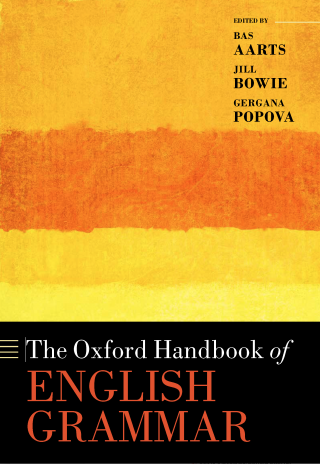
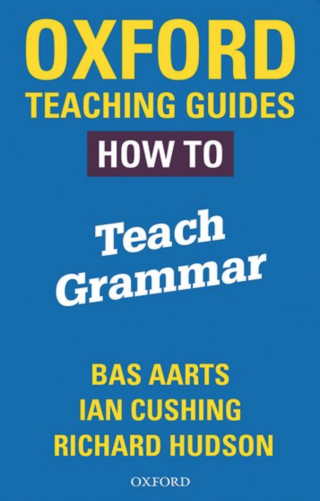
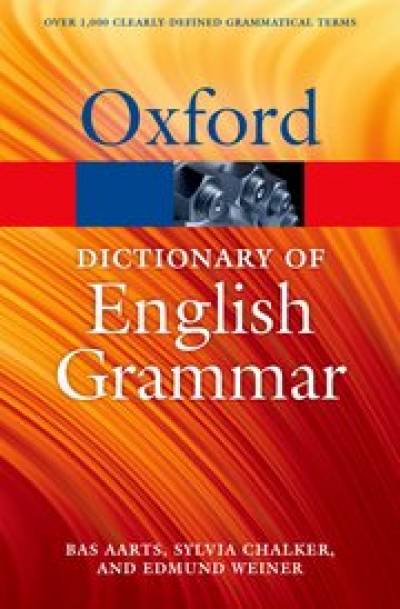
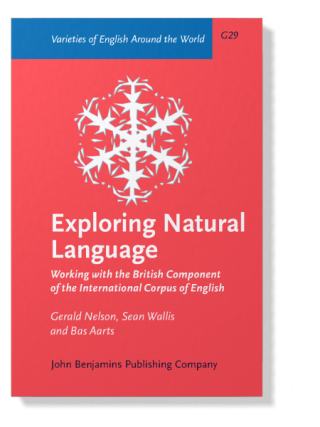
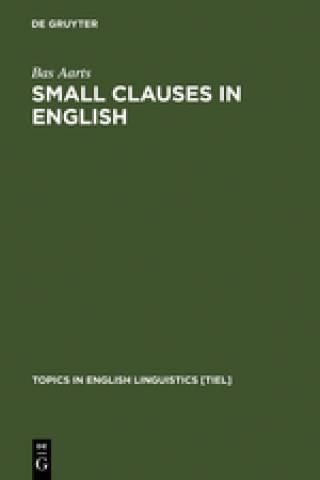
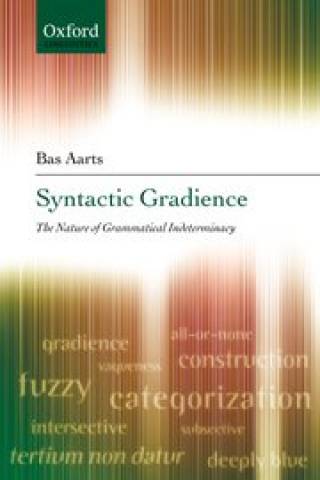
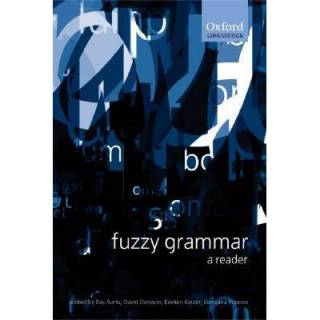
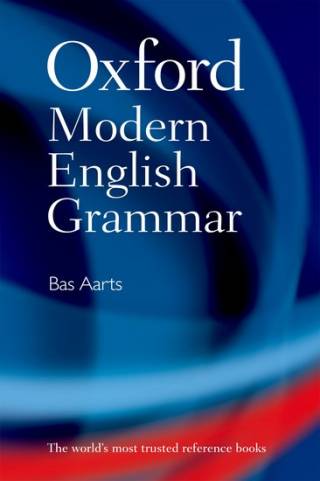
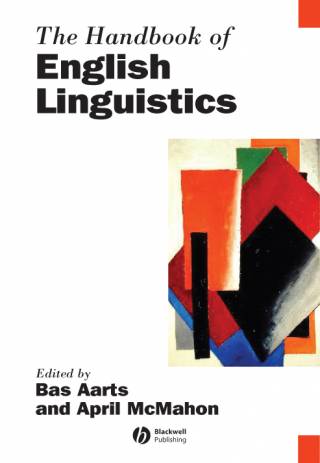
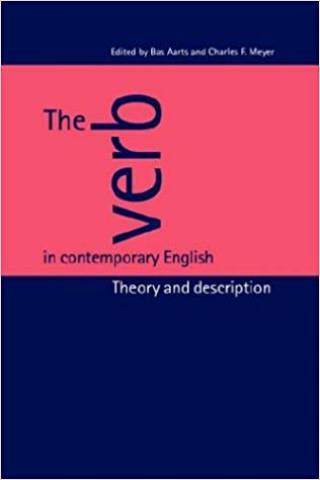
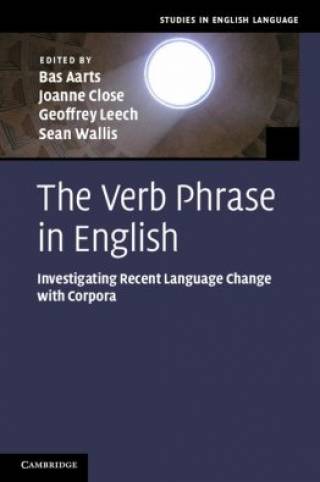
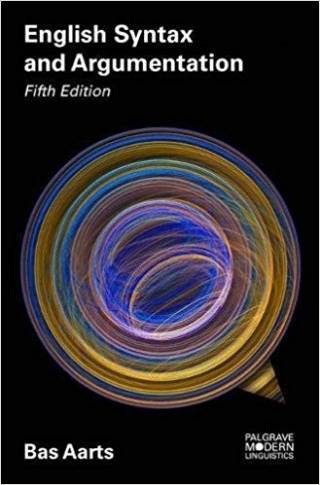
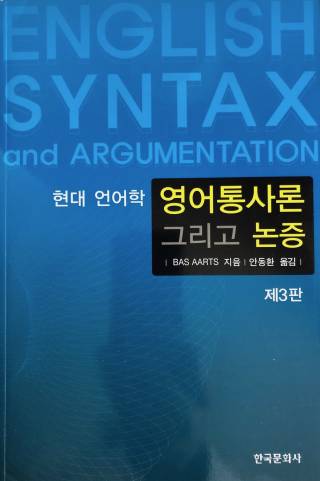
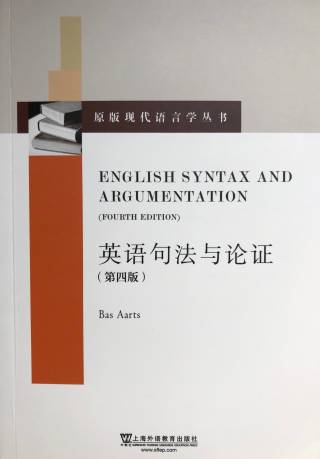
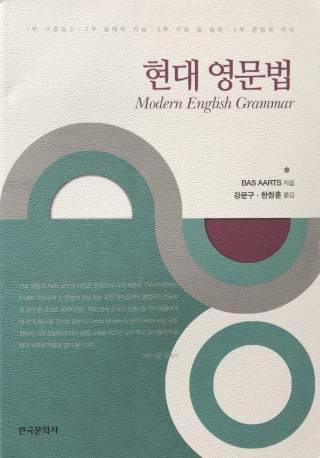
 Close
Close

